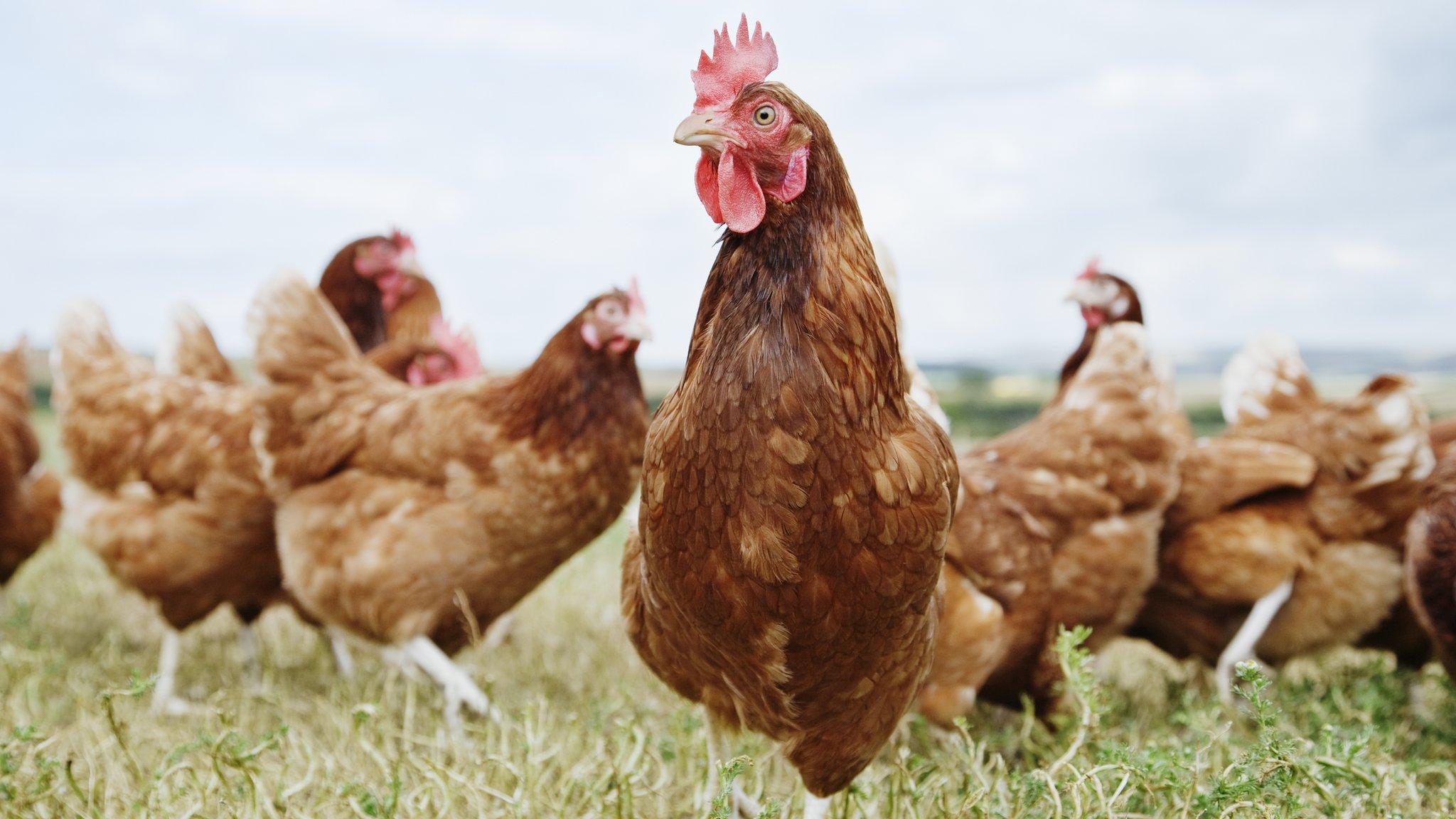Bird flu: Poultry owners in East preparing for 'flockdown'
- Published
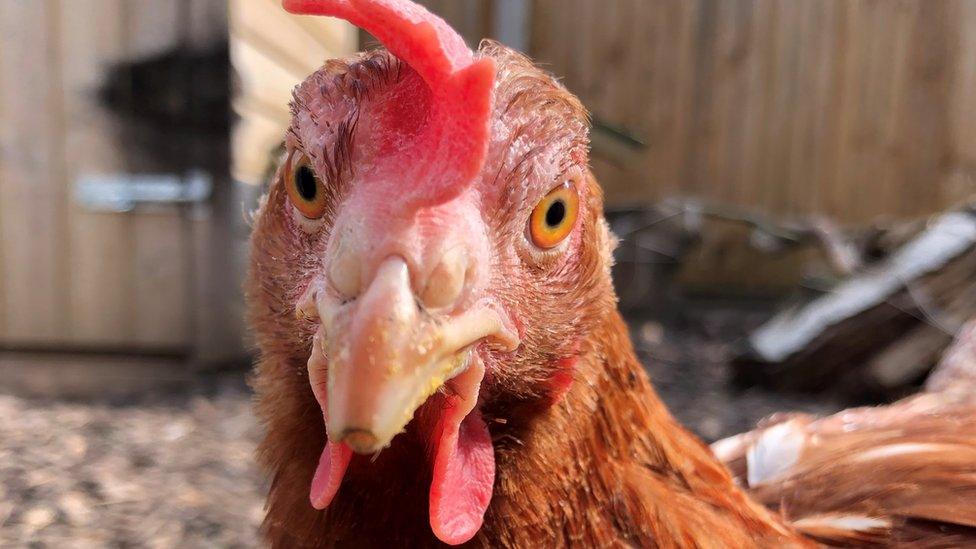
Poultry and captive birds must be kept inside from Wednesday
All poultry and captive birds in Norfolk, Suffolk and parts of Essex must be kept indoors from Wednesday, as part of government measures to prevent avian flu spreading. It is not the first time this has happened, but how are bird keepers coping with the demands and what do they think of the measures?

'The chickens hated it'
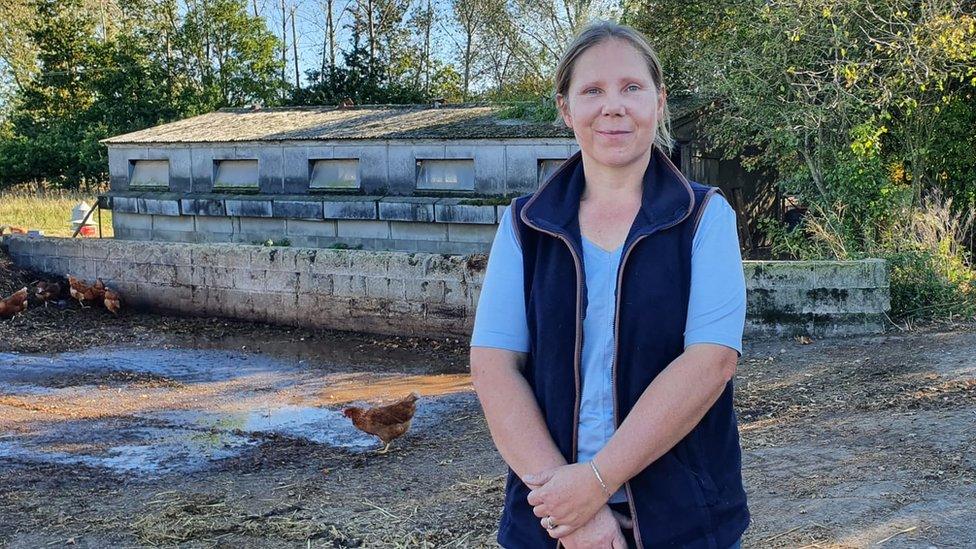
Rebecca Mayhew says she doesn't relish keeping her free-range flock indoors
Rebecca Mayhew, from Old Hall Farm in Woodton, Norfolk, has 300 chickens roaming free.
"I think it's fairly clear from previous years that lockdown, or 'flockdown' as we call it, was going to happen," she says.
A UK-wide housing measures lockdown was introduced by Defra on 29 November and was not lifted until 2 May this year.
However, Defra said over the last year the UK "has faced its largest ever outbreak of avian influenza with over 160 cases confirmed since late October 2021".
At the weekend, the department said the latest lockdown measures were being brought in "after the disease was detected at 17 premises in the affected areas since the beginning of September, as well as several reports in wild birds".
"I'm not looking forward to it," says Ms Mayhew.
"The chickens hated it last time because these girls move around so much. Being stationary for any period of time is completely unnatural to them.
"We're going to have to do a lot of work to maintain the high level of animal welfare they're used to.
"Wild birds are bringing this in and it's very reductionist thinking to think we can just keep locking birds down for months and months at a time - more than half the year - and not expect there to be a negative impact on animal welfare and nutrient density of what we're trying to produce, which is fantastic free-range eggs.
"So I'd like to know what the plan is for the longer term, because we can't keep doing this."

'Learn to live with it'
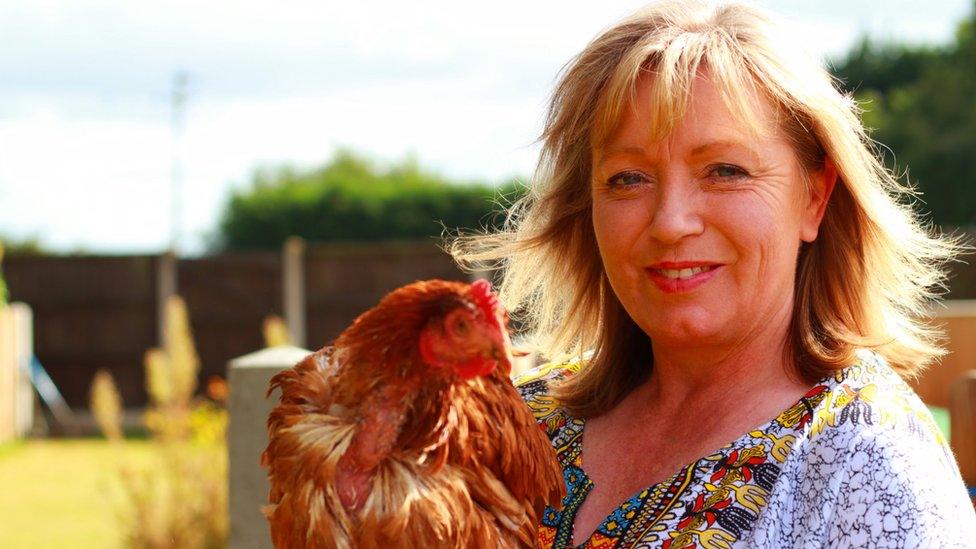
Vicky Sewell has 20 rescued hens in her garden near Wymondham, in Norfolk
Vicky Sewell runs a branch of chicken rescue charity Fresh Start for Hens, based in Watton, Norfolk.
Its Facebook members heard the news of Defra's proposed housing measures on Friday night and have since been sharing concerns and advice about how best to adhere to the rules.
"Lots of people let their hens run free, but after 10 years I've learned it's best to give them somewhere secure and sheltered as well," she says.
Very fine mesh that does not allow wild bird droppings to seep through can be used to cover runs, she says, but it is better with a secure tarpaulin.
"Hens bring such enjoyment, it's worth the investment."
However, the prospect of keeping hers cooped up for months is not one she relishes.
Enrichment of their surroundings is paramount to keeping the captive chickens content, she says.
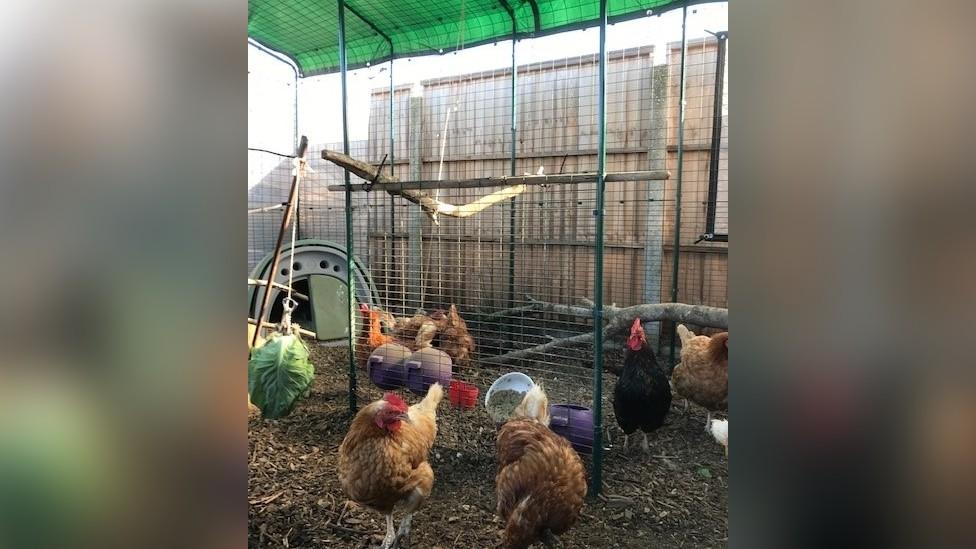
Toys and games and places to roost are included in Ms Sewell's covered chicken run
"They're very active and interactive, and they quickly sort out who's where in the pecking order.
"If they get bored they can peck at their own feathers or bully each other."
She provides shelving at various levels where they can roost, a ladder and a dust bath, and she hangs vegetables on hooks to "give them things to do".
"The new flockdown measures are important to protect a huge industry," she says.
"Someone likened it to Covid - we've got to learn to live with it."

'Livelihood wiped out'
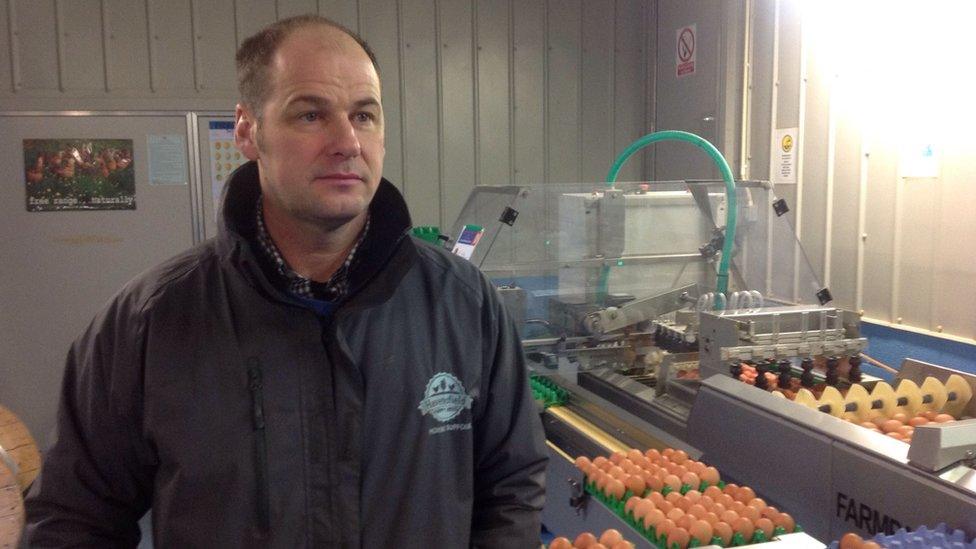
Alaistaire Brice's business supplies free-range eggs across the east and south-east of England
Alaistaire Brice is a commercial producer of free-range eggs to the East of England, London and Kent.
At his Havensfield Happy Hens farm in Hoxne near Eye, Suffolk, he has 20,000 birds and more than 100,000 on contract.
He says news of the latest lockdown was "desperately" needed, "because we need to get these birds housed and protected from the wild birds potentially contaminating our commercial flocks".
"It's just a new problem to deal with," he says.
"But it's getting more and more difficult to deal with it... it's endemic in the wild birds, so therefore us trying to manage and minimise the risk is getting so much harder to do.
"Defra are doing their best to try and contain the disease, but if I'm being honest, they're way behind the curve at the moment.
"There are hundreds of wild birds being found dead... and no-one seems to be picking them up and disposing of them, so the disease is lying in our wildlife and... we're leaving that pool of virus in our natural environment to then infect more birds.
"It's a double whammy - as a commercial producer, if we get bird flu we get killed out and have to spend hundreds of thousands of pounds disinfecting our premises to make it clean and safe to then restock birds."
Despite stringent biosecurity measures, he says: "It only takes one wild bird to get into a building and infect our whole flock and our livelihood is wiped out overnight.
"We're dealing with a major, major problem and I'm not sure if Defra have got the resources to cope with this if it continues to escalate like it is at the moment.
"The cost is going to get bigger and bigger, and it'll get to the point when there are no eggs and no chickens on the shelves."

The National Farmers' Union said in a statement: "The number one priority for poultry farmers is the health and welfare of their flock.
"That is why the NFU is urging Defra to consider expanding regional housing measures on a national basis."
Christine Middlemiss, the UK's chief veterinary officer, said the risk of the "highly infectious and devastating" disease was expected to continue to rise over the coming months as migratory birds return to the UK.
She said keepers in the hotspot areas "must continue to follow strict biosecurity standards to protect their flock".
In a statement, Defra added: "Any decisions on when to reintroduce a national or further regional AIPZs (Avian Influenza Prevention Zone) with or without mandatory housing measures will be based on risk assessments based on the latest scientific and ornithological evidence and veterinary advice."

Find BBC News: East of England on Facebook, external, Instagram, external and Twitter, external. If you have a story suggestion email eastofenglandnews@bbc.co.uk, external
- Published8 October 2022
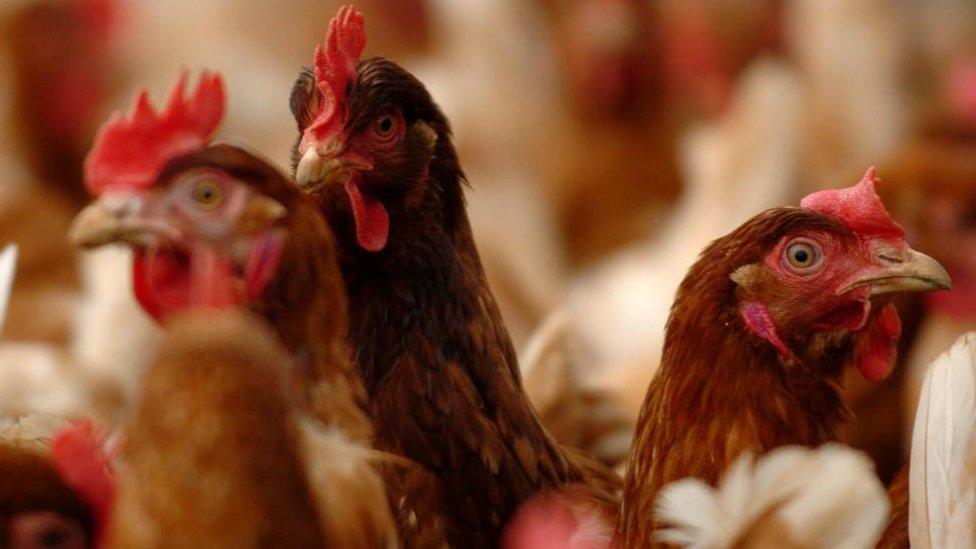
- Published3 October 2022
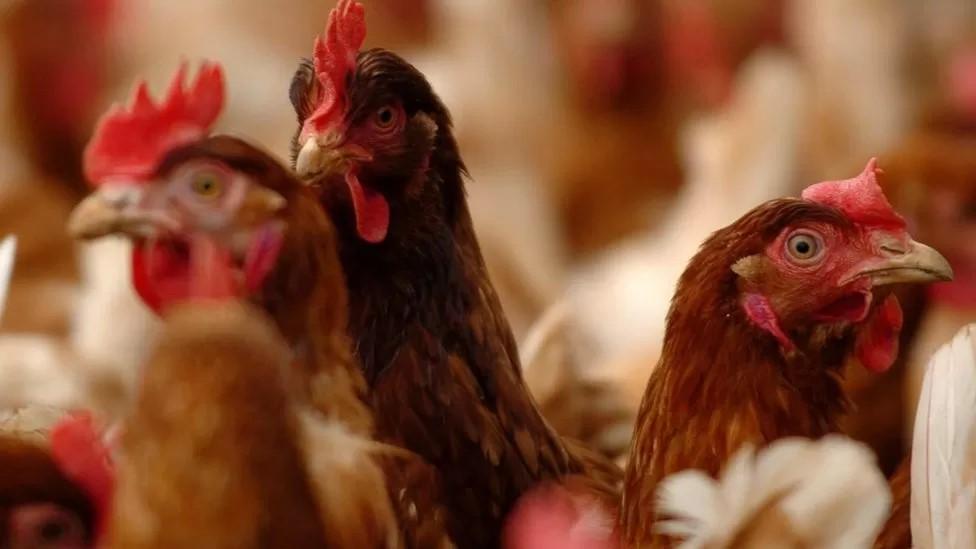
- Published29 September 2022
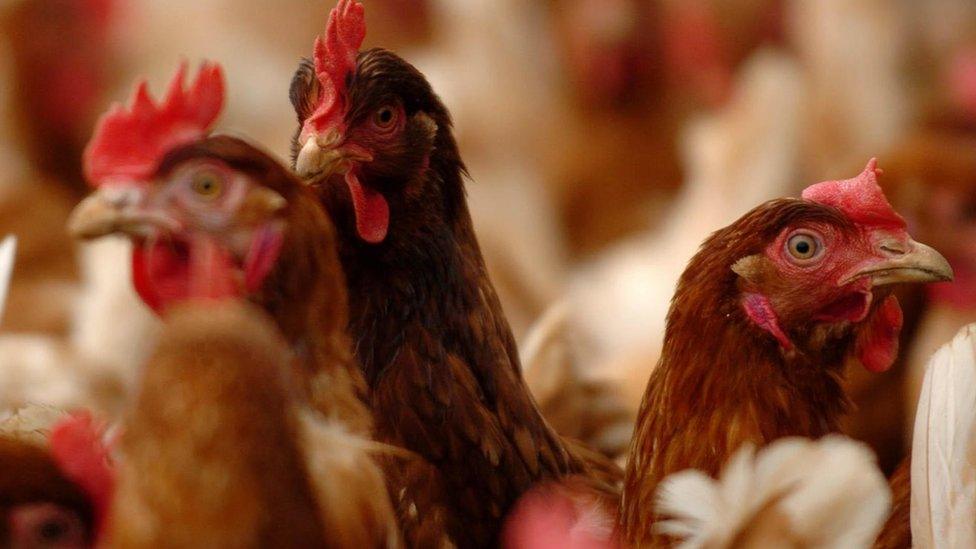
- Published27 September 2022
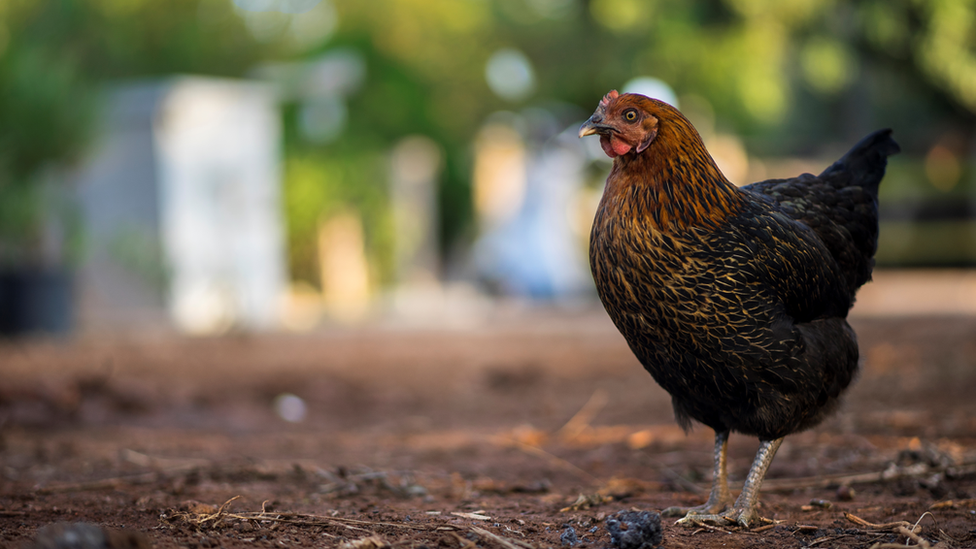
- Published2 May 2022
